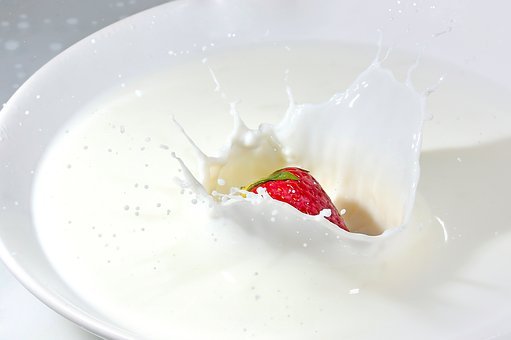Can Milk Cause an Iron Deficiency?
Milk is a healthy source of calcium and other nutrients. But milk can be problematic for some people, because it can cause iron deficiency. Babies and other young children are particularly at risk of becoming iron deficient because of cow's milk. Fortunately, simple dietary changes or iron supplements can correct this deficiency, according to Medline Plus, a service of the U.S. National Library of Medicine.
Iron Deficiency and Anemia
Iron deficiency occurs when you either do not get enough iron or when your body cannot efficiently use the iron you take in. You may lack iron in your diet, be unable to absorb iron or have bleeding issues. Children sometimes lack iron because of rapid growth. Because red blood cells require iron to function, a lack can cause iron-deficiency anemia, the most common type of anemia, according to Medline Plus.
Milk
Cow's milk can contribute to an iron deficiency in a few ways. Components in milk can block the absorption of iron, so that you don't get what you need. Milk can also damage the inner lining of the intestines, especially in babies and young children or those who are lactose intolerant, causing a slow, gradual loss of blood in the intestines. Consuming too much milk, which is low in iron, can fill you up and make you less likely to eat iron-rich foods.
Considerations
Iron deficiency caused by milk is rare in adults and older children, because their diets are typically varied, and their digestive systems are better able to handle milk. Babies younger than a year old should not be given cow's milk. Their primary nutrition should come from breast milk or iron-fortified formula. Babies given cow's milk before their first birthday and children between the ages of 1 and 5 who drink more than 24 ounces of cow's milk daily are at risk of becoming iron deficient.
Remedies
To avoid iron deficiency caused by milk, eat foods that are rich in iron. Meat, especially liver and kidneys, fish and seafood are the best sources of iron, because they contain heme iron, the form that is best absorbed by the human body. Plant sources, such as green leafy vegetables, nuts, dried fruits and beans, contain nonheme iron, a form that is less bioavailable. Fortified cereals and breads also contain nonheme iron. Nonheme iron is more easily absorbed if you consume it with a source of heme iron or vitamin C. Iron supplements are another option for those with severe iron deficiency. Avoid taking iron supplements with milk, because milk can inhibit the supplement's effectiveness.
